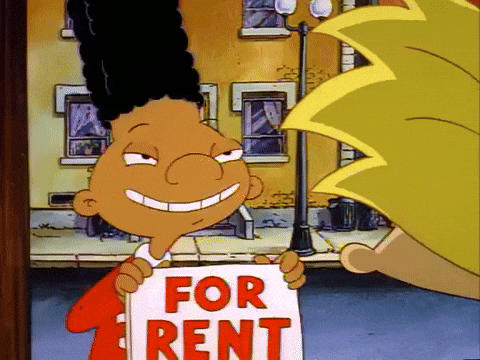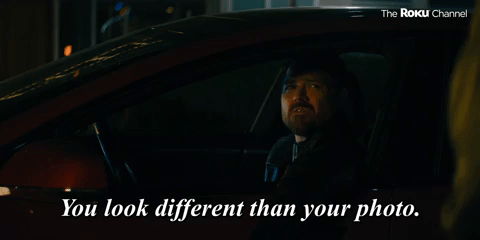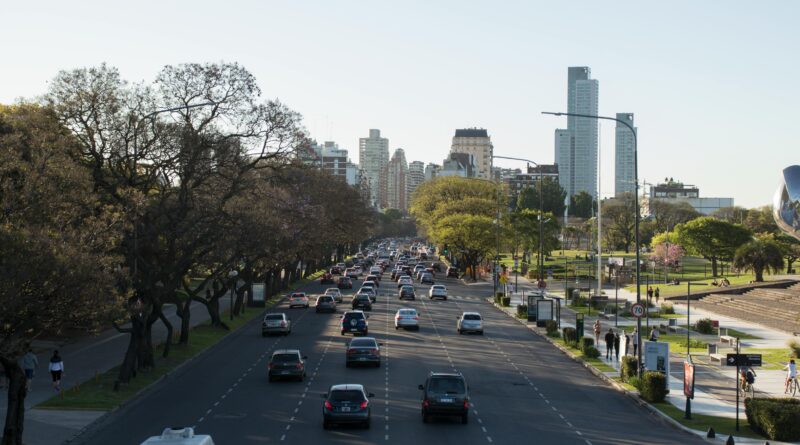A Comprehensive Guide To Renting in Buenos Aires
Welcome to Buenos Aires, where the weather is extreme, the lines at the bank are endless, and the rental market? Oh, it’s truly exceptional. Exceptional in the way that waiting for a bus in the rain feels special—because nothing here is simple, fast, or what it seems.
With a little help (and maybe a few deep breaths), it’s not that bad. You’ve probably already heard about the amazing lifestyle, the delicious food, and the friendly locals, but nobody warned you about the true rite of passage: finding a place to live. So, buckle up, because navigating this rental market is going to be your real Argentine test—but don’t worry, you’ll survive…probably 😉

Where the Heck Should You Stay?
So, you’re about to arrive in Buenos Aires and have no clue where to stay. You’re Googling neighborhoods, trying to figure out if you’re a “Palermo person” or more of a “San Telmo-soul.” Relax, until you’ve got your boots on the ground, trust us: just stick with Palermo or Recoleta for your first month.
Palermo is where the nightlife is poppin’, the bars are endless, and the streets are buzzing with energy. Whether you’re into rooftop bars, parks, or just soaking in the vibrant social scene, Palermo’s got it all. It’s the go-to for first-timers who want to be where things are happening without the hassle of getting lost in quieter neighborhoods.
Recoleta, on the other hand, is where the city’s classic elegance comes to life. Think grand architecture, tree-lined streets, and a museum or two just casually down the block. If you’re looking for that “old-world charm” vibe, Recoleta has you covered—plus, it’s pretty central, so you can hop anywhere in the city without much effort.
Once you’re settled, get on out there any check out the other neighborhoods to see which one you’d like to stay on the long term. San Telmo is perfect for the artsy crowd, with its vintage markets and bohemian vibe, while Villa Crespo offers a more relaxed vibe and close proximity to Palermo. Explore the barrios once you’re here and expand your horizons. Other solid choices that might give you a more “local” feel are Nuñez, Caballito, and Belgrano.
Don’t Commit Before You Get the Full Vibe Check
You’re about to arrive in Buenos Aires, ready to dive into the chaos and charm. First things first: do not sign a long-term lease without seeing the place in person. Unlike in other countries where booking online might seem normal and valid, here it’s a different ball game. In Buenos Aires, the golden rule is: if it looks too good to be true, it’s probably an estafa (a scam). If the rent seems like a steal, it’s likely because you’re the one getting robbed.
When first arriving, start with something safe, —like an Airbnb (with reviews, and no shady hosts, please). Use your first month to get settled and start your real apartment hunt from there.
Always visit in person—no exceptions. The photos? Probably taken in 2005, and the furniture? Straight out of a museum exhibit titled “Things You Didn’t Know Still Existed.” You need to get in there, check if it’s livable, and ensure the portero isn’t moonlighting as a troll king warlord.
And when it comes to paying rent, the magic word is pesos. Everyone wants to pay in pesos, and you want to as well—because in Buenos Aires, USD is like gold, and landlords know it. If dollar signs start popping up in the conversation, dodge them like you’re playing a high-stakes video game. Will it be easy to lock down a deal in pesos? Nope. But if you’re up for the challenge, sí, se puede. A little persistence might just pay off… in pesos.
The Options for Short/Mid/Long Term Stays
AirBnB: The “Why Not?” Option
Plenty of people never move past their AirBnB phase, and honestly, no pasa nada. AirBnBs are easy, convenient, and you can pay in your local currency. Sure, it’s significantly more expensive than what you could be paying, but hey, sometimes paying more for peace of mind is worth it. You get a clean bed, working lights, and reviews to help you avoid any “Motel 6 in disguise” situations. Perfect for your first month while you “figure things out”—though, spoiler alert, that’s going to take more than a month.AirBnB is obviously found on… well, AirBnB. Keep an eye out, and if you like the place, you might even be able to cut a deal with the host for a longer stay.
Temporarios: AirBnB, But Make It Local
Temporarios are like AirBnB’s slightly more authentic, less-polished cousin. These short-term rentals are typically furnished, and they cater to both foreigners and locals who need a quick place to stay. Expect a bit more local flavor—sometimes in the form of quirky 90s furniture and landlords that seem straight out of a telenovela. It’s usually cheaper than AirBnB, but still no long-term commitment, so it’s great for those still testing the waters. Bonus: You’ll get to brush up on your Spanish while haggling for a deal.
Regular Alquileres: The Commitment You Didn’t See Coming
Alright, so you’re ready to dive into the deep end—welcome to the world of regular alquileres (long-term rentals). These are for the brave souls who are prepared to settle down for at least 2 years, which is the standard lease length. If a two-year commitment makes you break into a cold sweat, don’t worry—sometimes shorter leases are possible, but get ready to wade through a swamp of paperwork and landlord negotiations.

Reiterating The Golden Rule: Always Visit in Person
No matter which option you’re leaning towards, remember the golden rule of Buenos Aires real estate: always visit the place in person. Scams (estafas) are real, and apartments that look too good to be true probably are. The photos? Could be from when the building was still brand new… 30 years ago. So get in there, take a look, meet the portero, and make sure you’re not about to sign up for a horror story.

The Wild Ride of Garantías
Here’s the thing about regular alquileres: they come with a fun little hurdle called a garantía. This isn’t some magical security deposit—it’s a co-signer, usually someone who owns property in Buenos Aires, who will vouch for you in case you decide to bail on the rent. Don’t know any rich porteños? No problem—there are companies who will gladly act as your garantía for a fee. Not sketchy at all, right?
But here’s a little insider tip: if you manage to get direct contact with the landlord or a smaller inmobiliaria (real estate agency), you might be able to sweet-talk your way out of needing a garantía. Show them you’re an extranjero with plata (cash), and assure them you’re not about to squat in their apartment. Good luck with the chamuyo (Argentine slang for smooth-talking)—you might just get lucky!
Deposits: Lock It in Dollars or Cry Later
Whether you’re going for a temporario or a regular alquiler, you’ll typically need to drop one month’s rent as a deposit. Here’s the insider tip: lock that deposit in dollars or another strong currency. Why? Because in a country where inflation has the agility of a caffeinated squirrel, leaving your deposit in pesos means that two years later, you’ll be handed back what’s essentially Monopoly money. Save yourself the heartache and secure your deposit in something that holds its value.
Ambientes: How Porteños Measure Space
If you’ve ever heard the word “ambiente” thrown around and wondered if it’s a new Argentine slang for vibe, you’re wrong. Ambiente means “room,” and here’s how they categorize apartments:
- Monoambiente: A studio. You, your bed, your kitchen, and possibly your sanity all in one single room.
- 2 Ambientes: Fancy! You get a separate bedroom and a living room, perfect for pretending you have your life together.
- 3 Ambientes: Now you’re in the big leagues. Two bedrooms and a living room? You might as well start hosting Sunday asados.
Expensas: Because Rent Isn’t Enough
Just when you thought you were done calculating your monthly budget, in comes the expensas. These are building maintenance fees, covering things like cleaning the lobby, paying the portero (who knows all the gossip in the building), and keeping the place from falling apart. You’ll be responsible for the expensas ordinarias—the regular stuff. But if they decide to renovate the lobby with golden doorknobs, don’t worry, that’s the expensas extraordinarias and should be covered by the landlord. Just check the fine print because nothing is simple here.
Misc. Pro Tips for Survival:
- Always be nice to the portero. He sees all, knows all, and can make your life easier if you’re in his good books.
- If you’re renting an unfurnished apartment, it most likely will not include a fridge.
- Consider the noise levels when viewing apartments. It might have the perfect aesthetic, but if it’s on a large avenida, that annoying, forever-revving motorcycle will be your nightly soundtrack. Peaceful sleep is priceless—so make sure the apartment has doble vidrio (double glass windows) and decent soundproofing. And keep in mind, it might be hard to gauge the noise when viewing during the day.
Final Thoughts: The Buenos Aires Rental Game
So, you’ve navigated the wild ride of Buenos Aires real estate: the endless apartment options, the garantía circus, and the joys of figuring out which ambiente is which. Whether you’re dodging estafas, negotiating in pesos, or simply trying to find an apartment with a fridge, you’ve now got the skills to thrive in this rental jungle.
It’s a lot, sure—but hey, you’re living in one of the most vibrant, chaotic, and ridiculously charming cities on the planet. You’re on your way to cracking the Buenos Aires code, surviving the noise, and maybe even charming a few landlords along the way. Now it’s time to settle in, enjoy the ride, and know that when it comes to renting here, you’re officially one of the pros.
The city’s quirks might test you, but at the end of the day, you’re living your best porteño life—and that’s what it’s all about.

BONUS: Rental Terms in Spanish
Maybe your Spanish is good, but let’s be honest—Cláusula de ajuste probably didn’t come up in your Spanish classes. Here’s a quick cheatsheet to help you out;
Alquiler – Rent. The one constant in life, aside from death and overpriced coffee.
Inquilino – Tenant. That’s you, the one desperately trying to get the Wi-Fi working.
Propietario or Dueño – Landlord. The person you’ll text 10 times when the faucet leaks, and who’ll respond… maybe twice.
Garantía – Nope, not a security deposit. This is a co-signer, usually someone with property in Buenos Aires, who agrees to pay your rent if you decide to vanish. Finding one is like finding parking in Palermo on a Friday night—nearly impossible.
Expensas – The building fees that keep things running… kind of. They cover cleaning, security, and the mysterious disappearance of all the hallway lightbulbs.
- Expensas ordinarias – Everyday upkeep, like sweeping the lobby or making sure the elevator doesn’t trap you for a day.
- Expensas extraordinarias – When the landlord suddenly decides the building needs a rooftop pool and you’re wondering why you’re being charged for it.
Contrato – The rental contract. Read it like your life depends on it. It just might.
Monoambiente – Studio apartment. One room for everything—yes, that includes eating, sleeping, and working from home. Welcome to efficiency living.
Ambientes – Rooms. Buenos Aires doesn’t do square footage, it does ambientes.
- 2 ambientes – One bedroom and a living room. Consider yourself fancy.
- 3 ambientes – Two bedrooms and a living room. You’ve hit the rental jackpot.
Doble Vidrio – Double glass windows. Your best friend against the nightly symphony of honking horns and revving motorcycles. Essential if you live on a main street.
Amoblado – Furnished. Comes with everything, and we do mean everything. From the couch to that odd painting of horses in the living room.
Sin Amoblar – Unfurnished. Not only will you have to buy furniture, but also things like lightbulbs. Yes, even the lightbulbs.
Depósito – Security deposit. Usually one month’s rent upfront, which you may or may not see again, depending on your landlord’s mood.
Inmobiliaria – Real estate agency. Great for finding apartments, not so great when they hit you with that commission fee.
Boleto de Compra-Venta – Legal document more used for buying than renting. It’s one of those things you don’t really need to know… until you do.
Portero – The doorman. He knows everything about your building—treat him well and your life will be infinitely easier.
Camilla – The freight elevator. Use it when moving furniture, or suffer the portero’s wrath.
PB (Planta Baja) – Ground floor. Don’t get stuck in the elevator pressing random buttons wondering why you’re not moving.
Contrato temporario – Short-term lease, usually furnished. Ideal for when you’re still figuring out which barrio you belong in.
Alquiler por dueño directo – Renting directly from the owner. Fewer hoops, more negotiation power, and potentially fewer surprises. Use your best chamuyo skills here.
Cochera – Parking space. If you have a car, expect to pay extra. And good luck finding street parking in Palermo—may the odds be ever in your favor.
Plazo – The lease term. Typically two years, but it feels like a lifetime when your upstairs neighbor has a drum set.
Anticipo – Advance payment. Because why ask for one month upfront when they can ask for three?
Recibo de sueldo – Paystub. Some landlords want proof that you actually have money to pay rent. Fair, right?
Mes de Adelanto – Month in advance. Hand it over when you sign the lease, along with your hopes and dreams.
Llave en mano – “Key in hand.” The apartment is ready to move into. Just don’t expect the lights to work unless you flip the breaker.
Contrato prorrogable – Renewable contract. In case two years wasn’t long enough in your current apartment.
Seguro de caución – Insurance that can replace a garantía. It’s easier but also hits the wallet harder.
Renovación de contrato – Lease renewal. Time to negotiate with your landlord for another round of expensas and mysterious fees.
Cláusula de ajuste – Adjustment clause. Because Argentina loves its inflation, rents are usually adjusted every six months. Keep an eye out for this sneaky line in the contrato.
Ampliación del contrato – Lease extension. Decided you’re not ready to move? This is what you need to stick around.
Subalquiler – Subletting. Technically, it’s not allowed in most contracts, but where there’s a will, there’s a way.
Período de gracia – Grace period. The landlord’s version of a favor. You get a few extra days to pay rent without getting kicked out.
Actualización del alquiler – Rent update. Another fun reminder that inflation runs Buenos Aires.
Contrato con ajuste en dólares – If your rent is pegged to the dollar, prepare for things to get expensive fast. You’ve been warned.
Mudanza – Moving. The most stressful day of your life. Get some movers (flete) and pray the elevator’s working.

